How Novelty Bets Became the Hot-Button Issue of Election Year
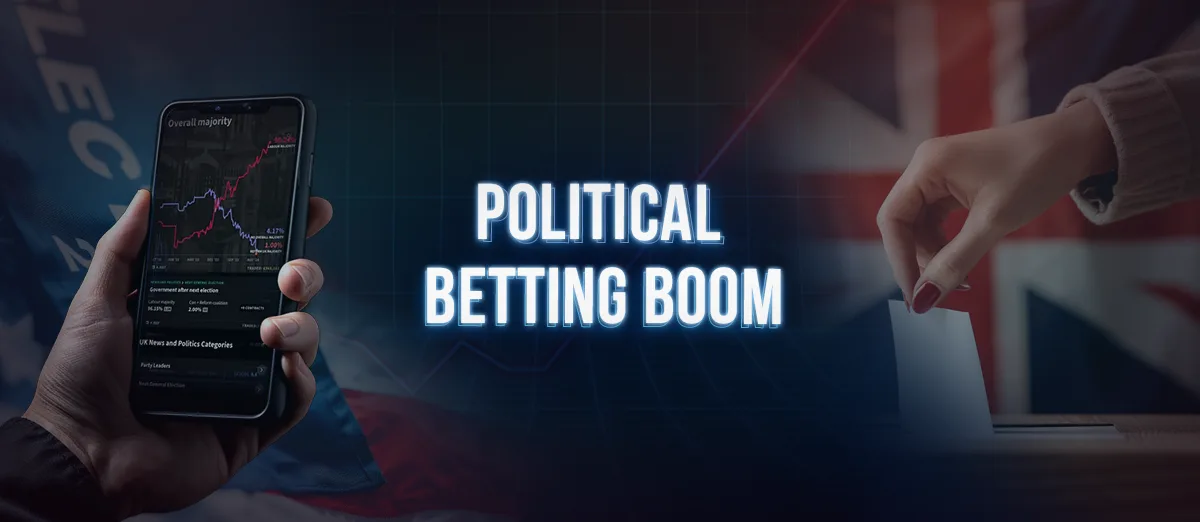
The British election betting scandal proved to be a final nail in the Tory Party’s coffin; could novelty betting play a role in the US election too? Forget Wimbledon, Euro 2024 and the Olympics. There’s a new form of entertainment to bet on. It’s called real life.
In recent years, an unusual and increasingly popular form of gambling has caught the public’s imagination: novelty betting. Unlike traditional sports betting, novelty bets can be placed on a wide array of events in the real world, from reality TV show results to the identity of the next Pope, to political betting. The allure of betting on such diverse and unpredictable events has attracted a broad audience, including bettors with no interest in sports and people who have never set foot in a casino.
Politicians and Police Officers in Hot Water over Election Wagers
Political betting in the UK made the news last month in the buildup to the British election, as a number of police officers and several Conservative politicians were implicated in a betting scandal. In May, shortly before prime minister Rishi Sunak announced the general election his aide and former Tory MP Craig Williams (who has now lost his seat) placed a £100 bet wagering that an election would be called on 4 July. Two days later — lo and behold — Sunak announced that an election would be held on that exact date.
After the Guardian broke the story, news emerged of several more suspicious political bets from people in and around the Conservative Party (including police officers), sparking an investigation from the Gambling Commission. The scandal was the last of many in 14 years of Conservative Party rule in the UK, as they lost the election to a landslide Labour victory when the 4 July election rolled around. But there was one Tory MP who secured a win — of sorts. Philip Davies, formerly the Conservative MP for Shipley in west Yorkshire, placed an £8,000 bet on himself to lose his seat at the election. And lose he did. Which means he won. Or at least that he won his bet.
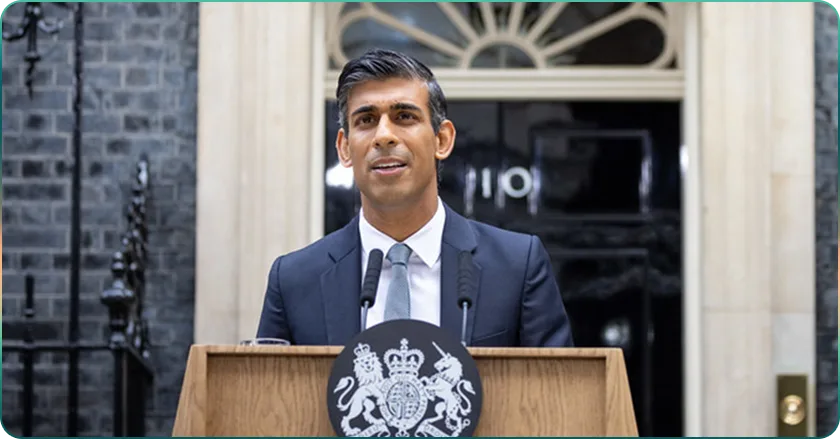
In a huge political year, with both Britain and France having already held landmark elections and the US soon to follow, are novelty bets — political and otherwise — about to get bigger than ever?
Sometimes referred to as special bets, novelty betting allows people to place wagers on non-sporting events. These can range from political outcomes and entertainment results to bizarre possibilities such as weather events or alien discoveries. The main appeal lies in its wide scope and the opportunity for bettors to engage with topics they are passionate about or have strong opinions on, whether that’s the winner of Too Hot to Handle or the next President of the United States.
Political Betting in the Digital Age
The rise of the internet and mobile technology have undoubtedly had a hand in the novelty bets’ rise to popularity, as online betting platforms have made it easier than ever for people to place bets on a wide range of topics from the comfort of their homes or even while they’re on the move. Social media also plays a role, as it allows for rapid dissemination of information and speculation, further fueling the betting frenzy.
In the instance of the Conservative Party betting scandal, novelty betting has been conflated with a kind of insider trading, as people with knowledge of confidential information have used that knowledge for their own financial gain — if the allegations are true. The core of the controversy revolves around the timing and specificity of the bets. Williams’s bet on the exact election date, placed so close to the official announcement, suggests prior knowledge.
If proven, this act could be classified as insider trading within the gambling sphere, a serious ethical and legal violation. The involvement of additional politicians and police officers in the UK election betting scandal hints at a broader issue of integrity and governance within both political and law enforcement institutions. It raises critical questions about the ethical standards upheld by those in positions of power and the measures in place to prevent the misuse of privileged information.
The Conservative Party betting scandal is not just a matter of individual misconduct; it reflects systemic vulnerabilities. The ease with which insider information can be exploited for personal gain indicates a need for stricter regulations and more robust enforcement mechanisms. It also calls into question the public’s trust in political processes and the individuals elected to uphold them. With any luck the number of similar scandals during the tenure of the newly elected Labour Party will be somewhat lower than that of their predecessors.
But betting has been intertwined with politics for centuries. British politicians were known to gamble throughout the Georgian era, until stricter gambling regulation and laws tightened the opportunities for UK political betting in the 19th century. Then in 1963 Ladbrokes began openly accepting bets on political events, with other bookmakers soon following suit.
From Brexit to Bond: The Novelty Betting Craze
These days, political betting often serves as a gateway for gambling companies to attract new customers to their more profitable platforms, like sports betting and online casinos. William Kedjanyi, head of political content at Star Sports, recently told the BBC that political betting has been “growing steadily over the last ten years.” This growth has been fueled by highly volatile events, such as the Brexit referendum, where the ‘yes’ and ‘no’ votes provided perfect conditions for betting. “People like to bet on very tight events,” Kedjanyi explained.
The scope of political bets has expanded significantly over the years. Traditional bets on election results remain popular, but there is an increasing interest in novelty bets, which involve predicting specific political events or decisions. Kedjanyi told the BBC that “elections by themselves are perfect betting events – there are lots of options across the 650 constituencies, betting on each one or overall victory.”
The psychology behind the novelty betting craze is an interesting one. Unlike sports, where form and statistics are the main thing, we think about before we place a wager, novelty bets are based on the interactions of people in their daily lives, often involving personal events like the success or failure of a person’s career. There’s so much sport to watch these days that it can be hard to keep up with who’s in form and who’s not, but lots of us fancy ourselves as trivia experts when it comes to film or TV, so why not bet on who’s going to play the next James Bond, or who’s going to have it off on Love Island?
The same is true in politics, which looks — increasingly — like a soap opera happening in real time. You might not have time to keep up with what’s happening on TV, but politics affects us all, so it’s natural for bettors to feel a sense of involvement in the political process.
Operators as Stakeholders in Political Bets
Bookmakers play a crucial role in all this. It’s their job to set odds, even political betting odds, manage bets and ensure fair play across the board. Scandals like the Tories’ betting controversy highlight the need for stringent regulations and oversight.
Bookies have to maintain transparency and prevent exploitation by individuals with insider information — according to the BBC, that meant all licensed bookmakers supplying the UK Gambling Commission with information on anyone who stood to gain more than £199 by betting on the July election in the UK.
We reached out to Hanan Greenberg, CEO of online casino and sportsbook Mr Play, which is licensed by Aspire Global, to add their perspective to the story.

“Given recent events such as the election betting scandal in the UK, Aspire Global has strengthened its compliance framework by implementing advanced monitoring systems and rigorous due diligence procedures,” says Greenberg. “These systems are designed to detect and report suspicious activities promptly, ensuring adherence to all regulatory requirements.”
“This proactive approach includes regular audits, continuous staff training, and close collaboration with regulatory authorities, fostering a culture of transparency and integrity,” Greenberg adds. “This collaboration is crucial in maintaining public trust, especially in light of high-profile betting scandals that can undermine confidence in the industry.”
Ensuring fair play and preventing scandals is in operators’ best interests, even if it might affect their bottom line in the short term. Greenberg also mentions “balancing business interests with ethical responsibilities,” and with the US elections approaching in November, the global novelty betting market is poised for yet more challenges. Betting directly on political outcomes is illegal in the US, so no legal sportsbooks offer lines on the US election. As a result, American sportsbooks are left out, while offshore betting markets thrive.
How U.S. Elections Became a Global Gambling Phenomenon
The 2020 U.S. presidential election between President Donald Trump and former Vice President Joe Biden became the largest betting event ever at the UK’s Betfair Exchange.
Experts estimate that global betting on U.S. elections is now worth over a billion dollars. This surge in interest was sparked by the 2016 election, where Trump’s unexpected victory caught many bookmakers off guard and paid out millions to bettors who had taken a punt on an underdog victory for the tangerine-skinned reality TV star. “The books took a bath,” Dave Mason, BetOnline’s sportsbook manager, remarked to Forbes in 2020.
In the 2016 election, Hillary Clinton was heavily favored with odds of 7/2 (4.5; +350) as the polls opened (suggesting a win probability of around 78%). But as we all know, she ultimately lost to Donald Trump in the electoral college. Trump’s victory defied not only the polls and expert predictions but also the betting markets, all of whom anticipated a Clinton win.
A similar expectation surrounded the 2020 election, predicting a Trump loss. For example, the spread betting company Sporting Index projected that Joe Biden would secure between 305 and 311 electoral votes as the polls opened, while Trump was expected to garner between 227 and 233 electoral votes. On that occasion the predictions rang true. But 2024 could be very different.
Betting Markets Heat Up as Presidential Election Nears
As the 5 November election draws near, bookies outside of the US are likely to see another surge in political bets soon. Following his shock victory in 2016, operators won’t want to be caught out again, and most of them currently have Trump as a heavy favorite to win in November — regardless of the countless lawsuits, scandals and controversies that seem to follow him wherever he goes (although his eligibility to run is still the subject of much legal debate).
Somewhat astoundingly, as a few political betting sites have reported in recent weeks, Biden is now only third-favorite to claim victory according to many oddsmakers, with his vice president Kamala Harris considered a more likely winner by lots of sites. Rumors of Biden withdrawing from the race, whether true or not, can’t have had a positive impact on his numbers — and neither can his admission that he nearly fell asleep onstage during a recent debate.
Perhaps it’s this kind of story that makes the current political climate so tempting to betting fans: as our feeds fill with stories more ridiculous than anything a political sitcom writer could ever come up with, it’s increasingly difficult not to see the news as entertainment. So why not ramp up the fun by investing a bit of cash in the whole charade?
The gambling industry faces both challenges and opportunities as the novelty betting craze continues to mushroom. On one hand stories about the popularity of novelty bets in a year with this many elections could be good for business, as bettors can’t help but get drawn in and start trying it for themselves.
Perhaps you think Trump, whose chances just jumped marginally following his assassination attempt at a Pennsylvania rally, will seal his return to the White House in November. Maybe you believe Kamala Harris will steal the nomination and romp to victory, or that Biden will turn it around. But it’s not just the eventual winner; elections offer a huge number of markets, from everything like the Republican-Democrat split in Congress to the buzzwords that get mentioned in each debate — think “climate”, “immigration”, “America” and so on.
At the same time, the last thing bookies want is for customers to start thinking they’re profiting from illicit gambling behaviors. Any bets that could be considered suspicious — i.e coming from someone who might have insider knowledge — must be reported immediately, and betting companies are obliged to cooperate with any investigations into suspicious wagers, like in the case of the Tory betting scandal.
“Operating in this market requires strict verification processes and robust internal controls,” says Greenberg from Mr Play. “These measures are designed to prevent illegal betting practices and ensure that all operations are conducted within the framework of the law and up-to-date regulation standards.”
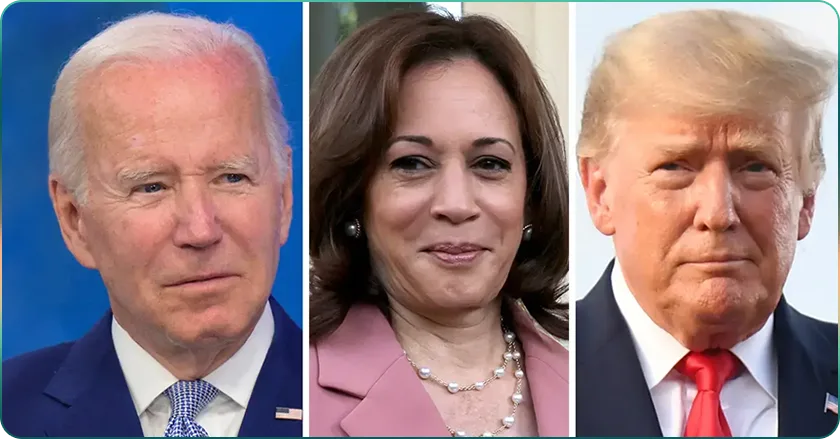
The Ethics and Intricacies of Political Betting
There’re also the slightly more abstract ethical implications of accepting wagers on what is essentially life and death. Elections and the circuses that surround them may now involve more gaffes than a Carry On film, turning out stories of corruption, deceit and incompetence that beggar the belief of the electorate; but the fact is every politician who gets voted in, every policy that gets passed into law and every crazy idea that gets voiced in parliament each has implications on the lives and livelihoods of millions of people. Such complications are part of the reason why some countries like USA impose strict bans on political betting in US online casinos.
In countries where political betting is legal, effective regulation is vital. This means establishing clear legal frameworks that specifically address novelty betting and insider trading within this context, making use of advanced technology to monitor betting patterns and detect anomalies, educating the public about the manifold risks and ethical issues of novelty betting.
Fostering international cooperation to ensure effective regulation of global events — which means, in view of the US election, communication between the American authorities and bookies from around the world to ensure that all political bets are coming from legitimate sources and being placed by responsible bettors (and not politicians).
Moralistic concerns aside, one thing’s for sure about the months between now and 5 November: it’s going to be one hell of a show. After many senior Democrat executives called for Biden to drop his campaign and step aside following a series of worrying stories about his health and age, he now sounds defiant in his will to soldier on, having recently declared on national television: “I’m not going anywhere.” Following a series of favorable rulings in the Supreme Court, Trump is unlikely to face trial between now and election day, which might leave a clear path for his return to the White House.
And if, like us, you’re outside the US, you’ll be able to bet on what happens with a clear conscience — at least if you temporarily forget that the results will have implications that could affect people around the world, not to mention the future of the planet itself. Will Biden make it to November? Will someone else come in and shake things up? Will Trump do something stupid? And how will the bookies handle it? Don’t be surprised if the stories keep getting weirder and the betting markets you see on your favorite sites get weirder along with them. It’s looking like a crazy election. And all bets are… on.

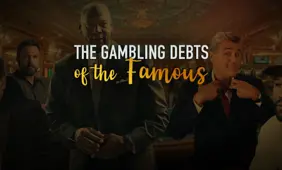
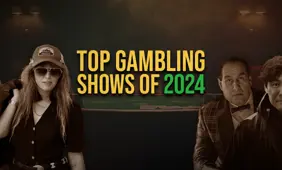

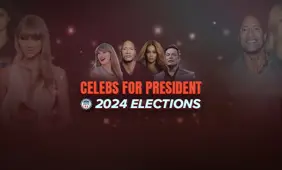
Review this Blog
Leave a Comment
User Comments
comments for How Novelty Bets Became the Hot-Button Issue of Election Year